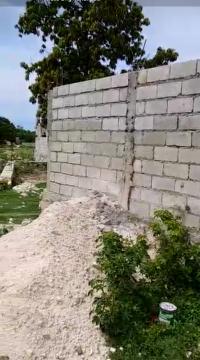Immersed in the Caribbean Sea, once a French colony, the beautiful Haiti was one of the first nations to declare its independence from America. It is undoubtedly one of the least wealthy countries on the American continent, but, of course, also the cheapest! Why are we talking about this? ...
Haiti
View listingshaiti.realigro.com is the first worldwide real estate search engine where you can look up listings of homes for sale in Haiti
Property for sale in Haiti
Haiti is a Caribbean country that shares the island of Hispaniola with the Dominican Republic, to the east. Even if the country has not yet fully recovered from the earthquake of 2010, many of its historical monuments, which date back to the early nineteenth century, have remained intact.
The capital is Port-au-Prince. Haiti is the nation with the largest African influence in America, it is a country with a flat reconstruction. Currently there are thousands of expats living, working and collaborating in development and cooperation missions.
If you are looking for buying a property for sale in Haiti you have to know that settling in Haiti will certainly not be a peaceful experience. Haiti is a a land full of contrasts and dreams of a new future for its young and hopeful population.
When it comes to acquiring property for sale in Haiti it is important to know that there is no credible property register at the moment. Scam and fraudulent sales are common, so it's a good idea to read well before making a purchase of property for sale in Haiti and always consult a lawyer.
In the last 15 years, Haiti has experienced a very rapid urbanization, doubling the number of urban residents from 3 to 6 million people. Haiti is now the third most urbanized country in Latin America and the Caribbean, after Trinidad and Tobago and Mexico. Every year more than 133,000 Haitians move to the city.
Many residents of Port-au-Prince are struggling to find a place to live at an affordable price and running water, while others lose hours of traffic at work every day.
So it is not easy to find good property for sale in Haiti.
Despite the difficulties arising from rapid urbanization, the levels of extreme poverty in Haiti have decreased, while the coverage of some services has improved in cities. Large cities are connected to the main road network, improving access to micro-credit.
64% of Haitians live in the city and the number of urban residents could increase from 6 million to 11 million by 2050: this rapid urbanization brings with it a growing demand for infrastructure, services and jobs, but above all it also brings economic opportunities and probably a rising number of property for sale in Haiti.
This is particularly surprising in the streets of Port-au-Prince, which are full of people, small street vendors, telephone shops and colourful tap taps, painted vans used as public transport. To take advantage of these opportunities, the report recommends more resilient urban planning to close the infrastructure and service gap and prepare for future urban growth.
Access to basic services has improved, especially in urban areas, but more needs to be done to respond to rapidly growing needs: while the residents of Port-au-Prince or the second city, Cap-Haitien, have better access in schools, health and electrical services, two thirds of city dwellers do not have adequate sanitation facilities and the rate of solid waste collection is very low.
Investing in the streets and improving the efficiency and convenience of public transport, as well as strengthening urban spatial planning, will be essential to reduce the loss of people in transit and facilitate access to jobs and markets. But also it improve the portfolio of properties for sale in Haiti.
A series of expensive natural disasters have eroded the benefits of the urbanization process: over 96% of Haitians are exposed to two or more natural hazards. There is a high concentration of buildings in earthquake zones and half is built on land exposed to flooding. After the 2010
earthquake, Haiti developed information and planning tools for risk management in the face of natural disasters, such as risk assessments against multiple threats, mapping of seismic areas and exposed assets.
-
Moving to Haiti . Expatriating and living in Haiti
 Map, price trends, and statistics
Map, price trends, and statistics
Real Estate Listings
For sale Other (Land), Haiti, Port-au-Prince, Petionville, Pernier

For sale
Other (Land)
517 m²
For sale House, Haiti, Port-au-Prince, Port-au-Prince, BOULEVARD center

For sale
House
130 m²
 Map, price trends, and statistics
Map, price trends, and statistics
